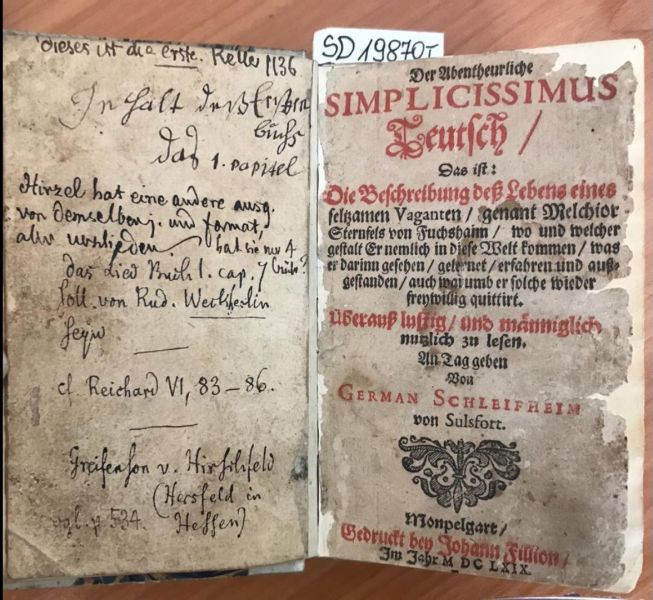Prof Eliza Pieciul-Karmińska from the AMU Faculty of Modern Languages and Literatures and Renata Wilgosiewicz-Skutecka from the University Library found twenty-seven new entries from the Brothers Grimm's private library. The search lasted almost six months, and the discovery may help to expand research into the authors' works on the famous fairy tale collection.
As early as 2002, Professor Wiesław Wydra listed six volumes (eight incunabula and one old print from the 16th century) from the private library of Jakub and Wilhelm Grimm in the 'Catalogue of incunabula of the University Library in Poznań'. However, in February 2023, Prof Eliza Pieciul-Karmińska and Renata Wilgosiewicz-Skutecka resolved to undertake a search and check whether there might be other books from the Grimm collection in the university library's collection, noted as lost copies in Ludwig Denecke's German catalogue. The search continued until June 2023, and the finding collection was expanded by twenty-seven items. "The volumes found in the University Library in Poznan from the Grimm brothers' private book collection, considered lost since the end of the Second World War, may significantly contribute to the growth of contemporary Grimm studies and give hope that the BUP's collection also contains further items - considered lost - from the private library of Jacob and Wilhelm," wrote the researchers in an article published in the university's Library Journal.
Interestingly, the recovered books contain, in many cases, handwritten notes by Jakub and Wilhelm, who frequently annotated motifs of interest on the book's cover pages. As the researchers point out, the notes are valuable for research into the Grimms' legacy, as they can give insight into their working method and choice of themes (e.g. in fairy tales). To learn more, a joint German-Polish study on the description and compilation of the notes would have to be initiated.
It is worth mentioning that the Grimm brothers' book collection is treated as a separate object of research in Germany and is displayed in the Berlin library in a shape possibly resembling the book collection used by Jacob and Wilhelm during their lifetime.
The photographs show handwritten entries and one of the books found - a first edition of Simplicissimus from 1669, a valuable print.




